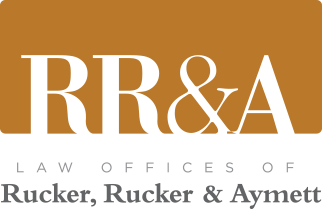Our Practice Areas
At our firm, we believe in making the legal process as clear and stress-free as possible. Whether you're seeking compensation after an accident, resolving a business dispute, or planning for the future, we offer practical legal support tailored to your needs. With deep roots in Murfreesboro and a long-standing reputation for results, we’re here to guide you every step of the way.
When you’ve been hurt due to someone else’s negligence, you deserve strong legal support. We handle vehicle accidents, premise liability, product liability, and manufacturing defect claims with diligence and care.
If you’ve been injured on the job—or you’re a business dealing with a claim—we offer experienced guidance for both sides of workers compensation law.
We know small business because we are one. When disputes arise, we provide litigation support that’s focused on protecting your interests and keeping your operation strong.
Avoid the stress and cost of trial. Our certified mediator offers a fair, neutral environment to resolve civil disputes and move forward without court.
Facing workplace discrimination or wrongful treatment? We help employees across Tennessee understand their rights and take action under state and federal employment laws.
Running a business comes with legal complexities. From contracts to collections, we help companies in Murfreesboro handle legal challenges with confidence.
Planning for the future shouldn't feel overwhelming. We make estate planning, wills, and probate manageable with clear, compassionate legal support.
FREQUENTLY ASKED QUESTIONS
Legal Services at Rucker, Rucker & Aymet
Do I need a lawyer for my personal injury case?
If you’ve been hurt in an accident caused by someone else’s actions—or negligence—it’s always worth talking to an attorney. We can help you understand your rights, estimate the value of your case, and handle negotiations with insurance companies so you can focus on healing.
How do I know if I have an employment law case?
Employment law covers things like discrimination, wrongful termination, and workplace harassment. If you’ve been treated unfairly at work, we’ll listen to your story and explain what legal protections may apply. Your initial consultation is free.
What should I do after a workplace injury?
Your health is the priority—see a doctor first. Then, document the injury, report it to your employer, and contact an attorney. We can help you file a workers compensation claim or defend your business if you're on the other side of a claim.
Can you help my small business with legal issues?
Yes—we offer practical legal help for small businesses, from setting up contracts to resolving disputes. Whether it’s collections, negotiations, or full litigation, we’re here to support you with solid legal guidance.
How does mediation work?
Mediation is a private, non-court option to settle legal disputes. A neutral mediator helps both sides reach an agreement. It’s often faster and less expensive than going to trial. We offer certified civil mediation services right here in Murfreesboro.
